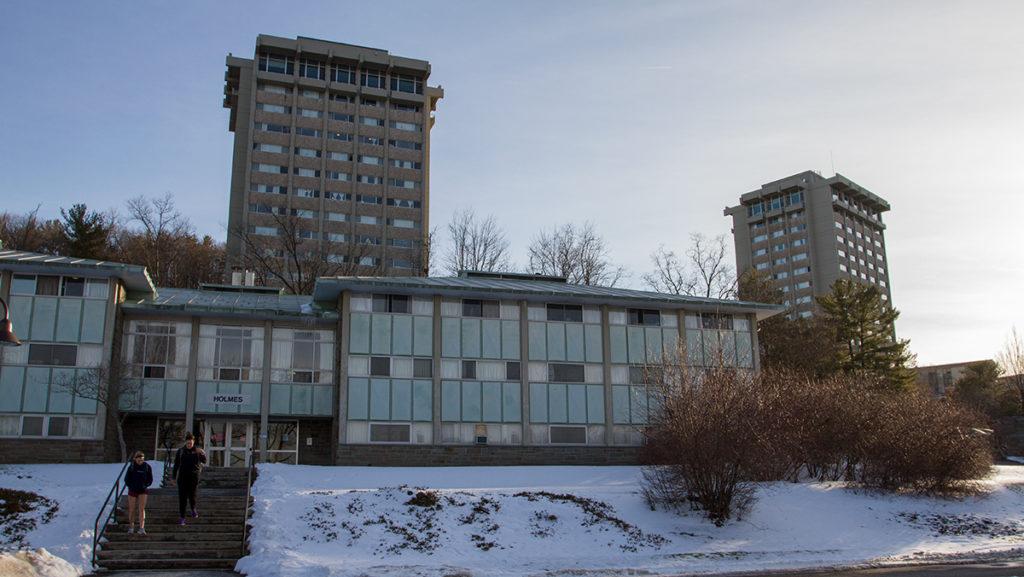Since December, Ithaca College has been working with U3 Advisors consulting firm to study the possibility of new off-campus housing for students.
The Office of Residential Life is working with the administration to gauge the interest in off-campus housing among students. Janet Williams, interim vice president for finance and administration at the college, said the study is in line with the goals set by administrators at the college this year. Williams said that by increasing revenue to the college through students’ renting additional housing from the college rather than from individuals in the Ithaca community, the college could become less reliant on student tuition to fund the school’s expenses.
“The Ithaca College goals for this year include continued exploration of how we can diversify revenue sources in the coming years so as to decrease the extent of our current reliance on student tuition,” Williams said. “We must continue to find ways to diversify revenues in order to keep costs as low as possible for our students.”
In addition to the possibility of the college being less dependent on student tuition, off-campus housing could benefit the rest of the Ithaca community. Housing that is built with the intention of housing students has the possibility of reducing conflict between students and residents of local neighborhoods, said Joseph Murtagh, second ward alderperson for the City of Ithaca.
Murtagh also said purpose-built student housing has the possibility of reducing issues with students’ partying.
“One thing is that it gets students out of those … older buildings and properties,” Murtagh said. “Those buildings, because they’re newer, are better constructed and … there aren’t as many issues with partying because in a bigger apartment building, it’s enclosed and they’re not out on some porch.”
A study conducted by the Danter Company in 2016 found that the City of Ithaca had a much lower percentage of purpose-built student housing compared to similar college towns and communities.
Nels Bohn, director of Ithaca Urban Renewal Agency for the City of Ithaca, stated via email that the construction of purpose-built student housing could help with the housing crisis in Ithaca.
“Such new housing would slow and possibly reverse the trend of conversions of owner-occupied homes to student rentals and pressure for controversial student in-fill projects in predominantly non-student areas,” Bohn said.
Linda Koenig, assistant director for housing services and communications, said off-campus housing could benefit sophomores who look for better housing outside of the dorms within the First-Year Residential Experience.
Emerson Hall and Terraces are reserved for sophomore students, according to the Office of Residential Life website. While juniors and seniors can select apartments in Circle or Garden Apartments in February, rising sophomores start housing selection in July.
Freshman Emily Faith said non-freshman students, sophomores in particular, have very few choices when it comes to housing.
“That’s kind of a limitation,” Faith said. “I want to live in Terraces. But for other people, it might be annoying.”
A possible drawback for off-campus housing, though, could be that the Town of Ithaca loses a portion of its tax revenue, as property owned by colleges are tax–exempt. The City of Ithaca has had issues with the loss of its tax base in the past with property owned by Cornell within the city limits.
“Cornell owns a lot of property, and all of that property is tax–exempt,” Murtagh said. “Cornell makes a voluntary contribution of about $1 million a year, … but we would like to see that contribution increased.”
In general, though, the need for additional housing — off campus or otherwise — has been felt by the student body. Sophomore Bella Chrzanowski said figuring out housing from year to year is an unneeded stress.
“More housing is just needed in general,” Chrzanowski said. “There’s just no housing in general. … They over-accepted my freshman year, and I’ve lived in Terraces two years in a row.”
Williams said she does not have answers regarding where new housing would be built, or how much the project could be expected to cost.
“All options are open at this point,” Williams said.








